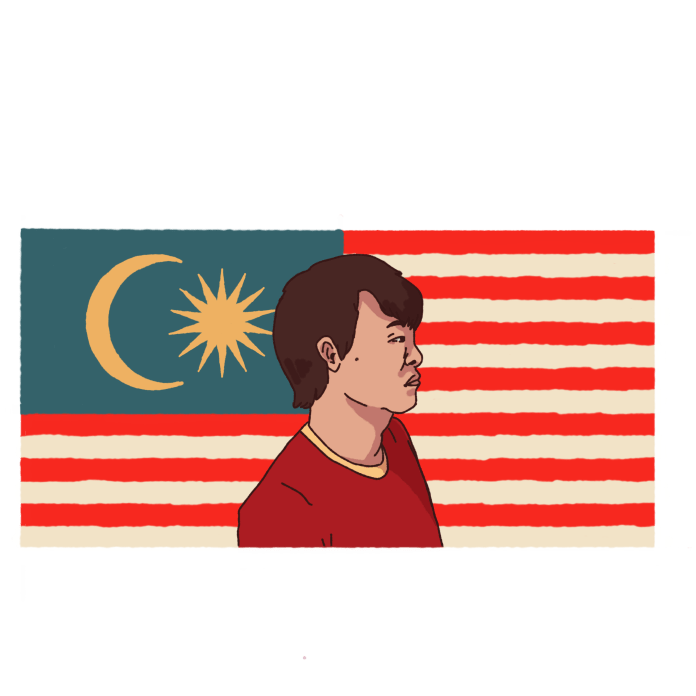Countries “commodify workers to export them as products,” Angie Ngoc Tran said during her talk on Oct. 22. Tran, a political economy instructor at California State University, Monterey Bay (CSUMB), spoke as part of the Internationalization Series presented by the university’s Academic Senate Committee on International Programs (ACIP).
Tran’s talk was entitled “Ethnic Dissent and Empowerment: Economic Migration between Vietnam and Malaysia,” which is also the title of her new book covering her research.
CSUMB social and behavioral student Kaya Ortega was the session’s emcee who introduced Tran and guided the talk.
The program opened with audio clips collected by Tran’s cousin, a musicology researcher in Vietnam, as well as a Cham Muslim call to prayer Tran heard during one of her trips. These recordings set the stage for the program and transported the remote audience to Vietnam.
Tran wished everyone good evening and good morning to the audience members in Asia, acknowledging and thanking the diverse audience attending.
Tran herself is part of the Kinh majority ethnic group in Vietnam and acknowledges the power and privileges that come with that. The Vietnamese people are comprised of 54 different ethnic groups with a variety of languages and cultures.
This also means when Tran conducted her research on ethnic minority groups, she did not speak their languages.
Tran had to rely on local guides and local officials to aid in her research. She was at the “mercy of their translation.” Tran said she asked “the real stories” when the officials went on their cigarette breaks. Otherwise, she had to censor her questions in order to protect herself and the people she was interviewing.
Audience member Mary Alexander asked “Did Dr. Tran ever feel unsafe during her travels for research because of the topics she was researching?” Tran replied that she did feel unsafe, especially when she went rogue for the sake of her research.
Tran visited a commune in Malaysia that had been quarantined after the government claimed a pro-democracy group tried to influence the people living there. She was not allowed to be there, but said that without government officials lurking her interviewees told her the real stories.
Ever dedicated to her research, Tran also went barefoot up strenuous remote mountains in the rainy season to visit the people she was studying. “I love fieldwork,” Tran commented.
This dedication led her to many discoveries about economic migration. Tran talked to families of migrant workers about their experiences because “migration is a household decision.”
According to Tran, migration also comes with huge pressure on migrants to send money home and it can be full of risk. Many of these workers are on tourist visas working in Malaysia as undocumented workers.
One story Tran shared was of a woman who learned sewing from her aunt and worked as a migrant worker then came home to Vietnam and started her own clothing label. This entrepreneur created jobs for her whole family and stimulated her local economy.
Due to COVID, migrant workers also have enormous bargaining power should they choose to use it. Workers are fleeing back home, but companies are desperate to retain workers and avoid supply chain delays. These delays trickle down to the United States where Tran’s own book is late to be published because of paper shortages.
Tran cautioned against romanticizing economic migration, because these illegal workers are in dangerous situations and at the mercy of the kindness of the communities that take them in.
Tran believes that the condition of migrant workers can improve through collective action.
“We need institutions,” Tran said. “We need union representation because strength is in the numbers.”
According to Tran, by December 2019 via labor export policy, the Vietnamese government had sent over 540,000 Vietnamese migrant workers to work in over 60 countries and territories.
Although both the Vietnamese and Malaysian governments benefit greatly from the commodification of workers by getting revenue from airfare, visa fees and more, “people find all kinds of spaces to resist… to push back,” Tran said.
While COVID halted Tran’s fieldwork, her ongoing projects include looking into vulnerabilities and empowerment of the H-2A Visa migrant guestworkers in California’s agricultural industry and studying welfare provisions of migrant guestworkers from Vietnam in the time of COVID-19: focusing on women workers.
The next talk as part of the Internationalization Series will be on Dec. 17.
Hojin Song will talk about “The Making of Microcelebrity: Live Streaming and the Younger Generation in Neoliberal South Korea.”

